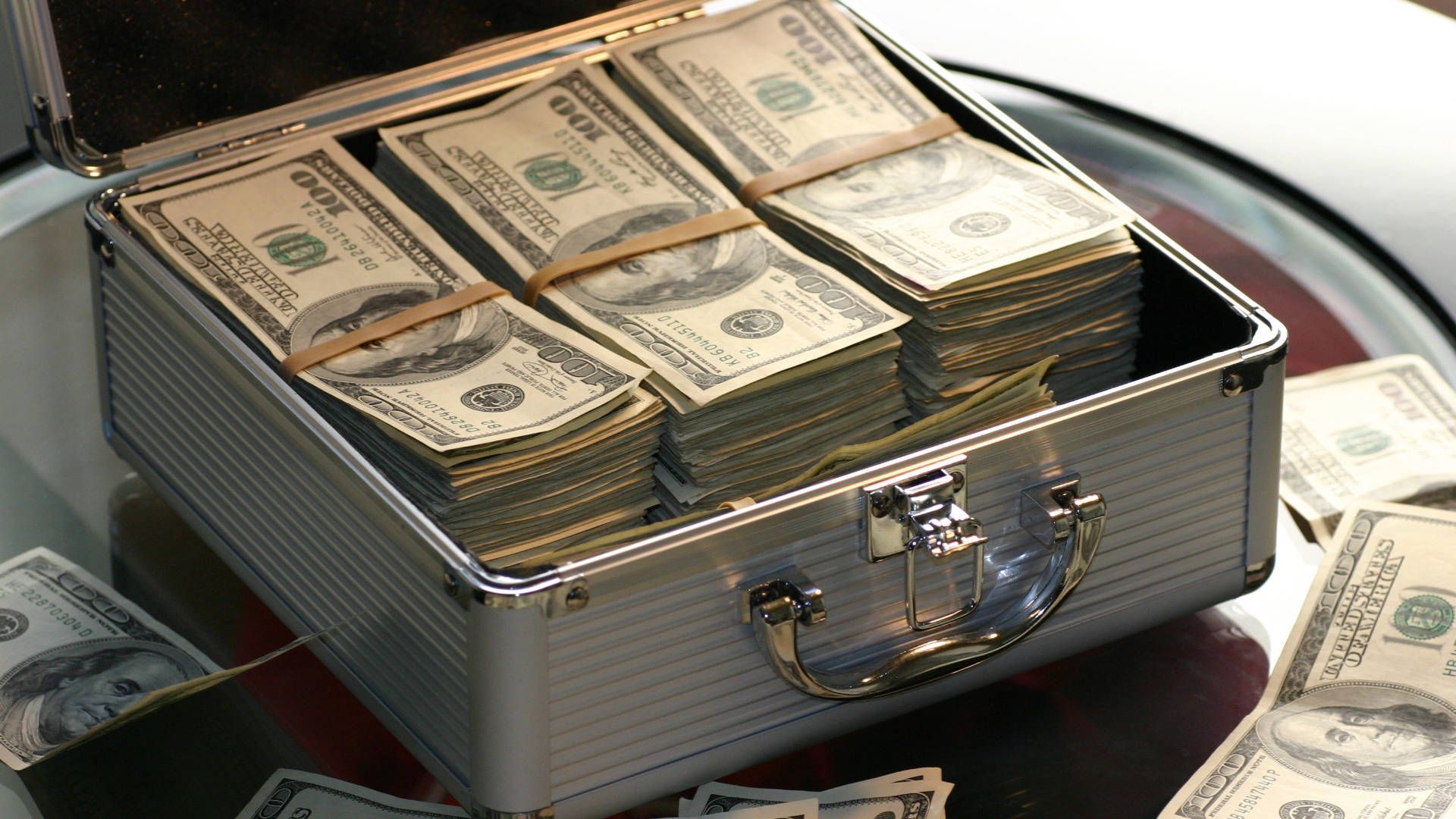This blog is going to be full of hypocrisy as I myself will be preaching about something that I still grapple with. Something I fear we can all understand.
That "thing" is my relationship with money. Money is such a strange, almost taboo concept that we have hyper-normalized but seldom speak about (in terms of a relationship). In my eyes money is one of the most fundamentally important things that drives behaviour and society in general.
Money grants us freedom to choose jobs, have better healthcare and also gives us options to travel and feel secure. We pursue money in the stock market not simply to have it, but to measure ourselves against others. Like anything with it's opposite, the pursuit of money can also be quite dark and emotionally consuming.
Mo' Money Mo' Problems
Even though money gives us options. Seldom do people (myself included), pay attention to the destructive forces, addictions and quest for dominion money can bring to the surface in our psyche, be that conscious or otherwise.
For me, money became so important that I forgot how to live life outside of work, the stock market and being a "landlord". I noticed so many destructive behaviors that turned money into more of a hindrance and trap than liberator and in many ways I still struggle with it, some observations and habits I observed:
- I began comparing relationships I have with people based on money. This stirs up many emotions around jealousy and self-esteem. Equating my own worth to that of my bank account.
- Becoming paranoid and fearful of losing money and developing a hoarding mentality, sacrificing simple pleasures or punishing myself.
- Paranoia in general about people wanting to "take what's mine". This leaked into other parts of my psyche around physical possessions.
- Completely associating my self-worth with my bank account or trading account.
- Spiraling negative thoughts when losing and going into mini cycles of depression.
Now, I am not saying that this needs to be the case or is the case for all traders. I am saying this is what it became (and still is) for me on many levels. The cycle of elation when I am winning and despair when I am losing has been relentless the more wealth I accumulate.
This really came to a gigantic crescendo last week as I broke down in my Psychologist's office and had a complete meltdown. A meltdown brought on by the strangest thing - being kind to myself!
A Turning Point and a Meltdown
I had bought myself a new bike (as below) but could not shake the feeling of despair, guilt and self-disgust because I actually did something for myself.

Why didn't I give it to charity, or help a starving kid in Africa or put it into my kids retirement! What an absolute piece of shit I am!
I spoke openly to my Therapist about how I had nothing in the past and now had to fight for everything I have, which meant hoarding, winning and basically doing whatever it took to win, even if that meant that my mental health was at risk. It was far riskier not to win albeit dangerous in ways I couldn't understand.
Sprinkle this with some classic religious guilt, terrible inconsistent childhood full of moving around and constant uncertainty and it's easy to see how a faulty model of "normal" can become both very positive and devastatingly negative. Positive as driven by insecurity which drove performance and validation seeking, negative because of.... well... insecurity, anxiety and other neuroses.
I felt like I needed to send back my bike. I didn't deserve to enjoy it and everything I had was sheer luck (impostor!). Maybe it was, irrespective of the "success" or even "failure" the big question was "Why do I feel so terrible about enjoying myself".
Trading can be a treacherous pursuit if these feelings are the dominating force in how we approach risk and the market. Guilt and regret have no place in a trading strategy.
The Newsletter
Sign up to get a monthly email about my trading journey, what I learnt or failed to learn and receive exclusive access to unpublished material and resources.
Replacing Money for Dysfunction
Having done some extremely sensitive work on this. My psychologist and I identified some very interesting concepts that I wanted to share with you because I feel it applies to all of us.
Money is so powerful and taboo, that in many cases, particularly for stock traders, our quest for money is actually a quest for something much deeper. It's a quest for validation, for supremacy and of course our perceived notion of "freedom".
Some examples:
- Money can replace a broken home and replace the feeling of abandonment and become the mother or father figure. Being validated by money instead of love and care.
- Money can replace relationships as a safety net or a sense of security.
- Very importantly, having money can feel like we are in control. The sense of power that comes with money is obvious and perpetuated by marketeers to keep us in a heightened state of "wanting".
Not to say these things don't have merit in a balanced individual, however, what is balance? And where do we set the boundary, more importantly, how do we set that boundary.
This concept scared me as after our session I began noticing some very odd behavior I never really caught before.
- Taking a €1000 loss was okay but buying a new pair of shoes wasn't.
- Spending money on myself made me feel out of control and hat I would end up homeless.
- Limiting things I enjoyed felt like penance for losing money in the stock market.
It was striking to me that by dealing with feelings of abandonment and rejection from my childhood manifested and almost became the catalyst for "why I trade". I do love trading but I can't imagine how good it would feel to do it without guilt, fear or judgement. This pursuit of the process, free of these emotional chains has now become my true pursuit.
When Winning Feels Good
In an effort to go back to what feels good when I trade, I took a few notes on what feels really good about the process of trading itself. I've been using this as a tool to act in accordance with my true vision of personal success vs being dragged around by emotions:
- When I follow my plan be it a win or a loss, it feels great!
- Not buying stocks or avoiding over-trading on emotional triggers lets me know I am in control instead of questioning it.
- Being consistent in my daily routine, preparation and execution helps me feel like I am heading towards my goals.
- Not looking at P&L and having knee-jerk reactions to my net worth.
- Reviewing trades in-depth and understanding why things work and others don't.
- Documenting all of the above like a professional makes me feel like a professional.
I've found that immersing myself in the process, somehow results in far more realized gains than looking at my net worth. It's actually astounding how when I am logging trades, calm and balanced - the money just seems to gravitate towards me, it's almost magnetic.
Recognizing all of these things has changed my association with money on a number of levels but still needs work. My new goal with trading has become far more process centric vs only about the P&L (because my plan statistically guarantees profitability if followed).
Letting go to Get More
I want to end this blog with a small fable that reminded me of my own debacle, it goes something like this:
A baboon walked into a hunting ground and found a jar full of interesting edibles (not that kind). He put his hand in the jar and grabbed as many as he could.
He heard a rustle in the bushes, it was the hunters were returning from their day trip. With his paws full of juicy treats he held on and tried to take the jar with him. Unfortunately, the jar slowed him down and the hunters opened fire blowing him to smithereens.
With the life draining from is paws, he let go and the jar dropped to the ground emptying it's contents with little effort.
The baboon had many options open to him, tipping the contents out of the jar, letting go of the juicy treats or simply taking less. He decided however to hold on to the prize and become myopically focused on what which brought upon his downfall.
The same thing happens to us in the market, greed and the blind pursuit of profit forces us to avoid acting in the right way. We hold onto bad ideas and stocks in the hope of something great. The result is our obsession with the money ends up destroying our love of the game and the reward of mastery.
Just something to think about. I hope you can learn to let go too.






